
I am a keen industrial designer who loves problem solving, exploring how things work, and pushing the boundaries to achieve new ideas and skills. Having also lived overseas, I believe I work well and communicate with a range of people.
Napp
Final Project
Helping users to manage and improve their general well-being in the age of information, with a focus on sleep, emotions, and meditation.
The problem with most well-being products on the market is that they rely on the use of apps to function and display your data, which contradicts research that shows our excessive reliance on our mobile devices is bad for our mental health. Napp is designed to solve this issue, particularly through it’s physical benefits that apps cannot provide, providing one for each well-being focus point.
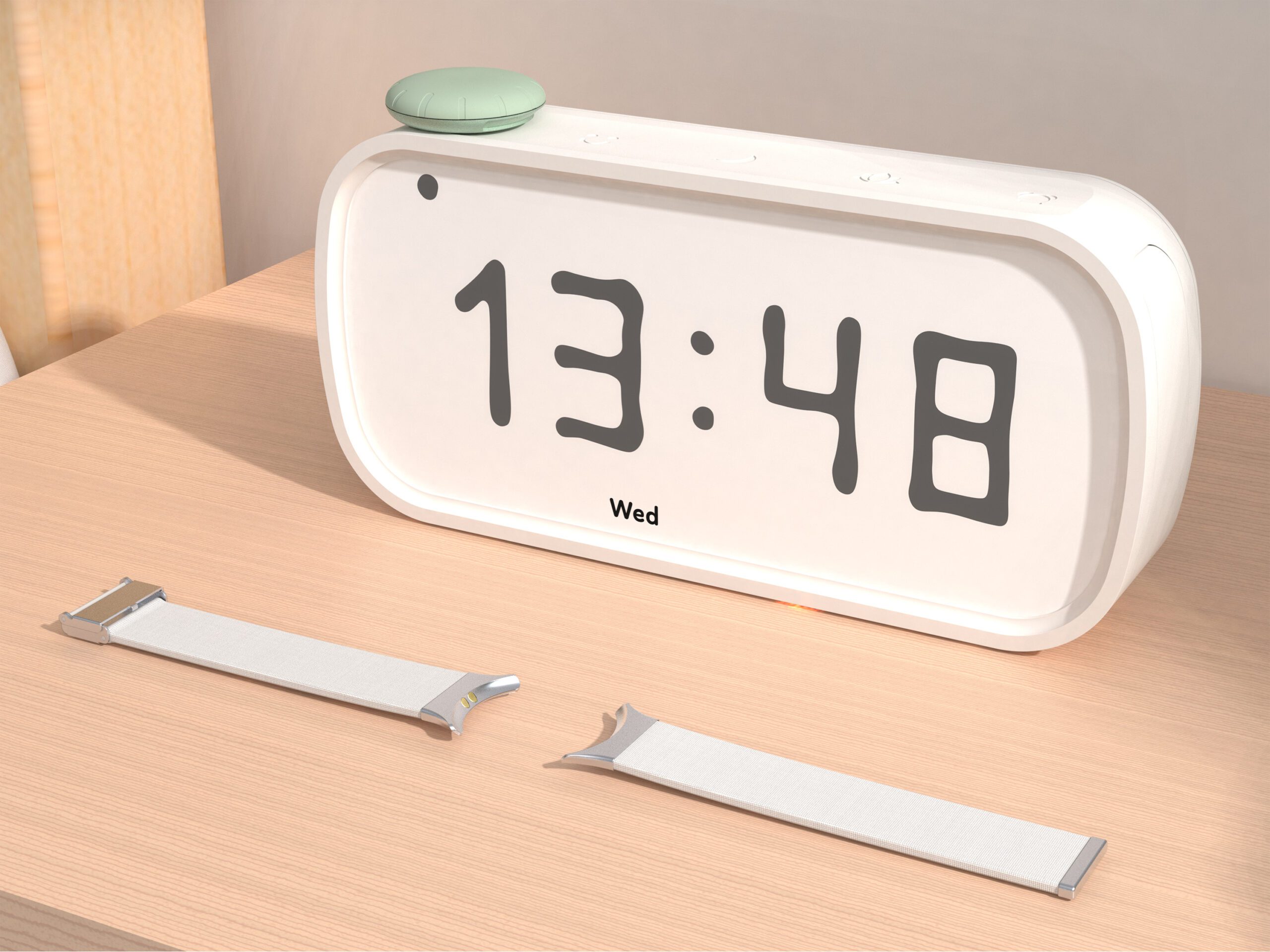
Monitor and Improve your Well-Being
The hub device, which sits on your bedside table to track your sleep, uses a bright sunrise light to help wake up the user. The watch device provides cooling around the wrist when it detects high stress levels (proven to help), and uses vibrations to guide the user when doing breathing exercises.
The device aims to not just present the user with their data, as research showed it can be hard to know how to act upon it. Therefore through an evening reflection guide, in the format of a casual conversation with the hub device, the user gets a tailored advice based on their well-being data points of the day.
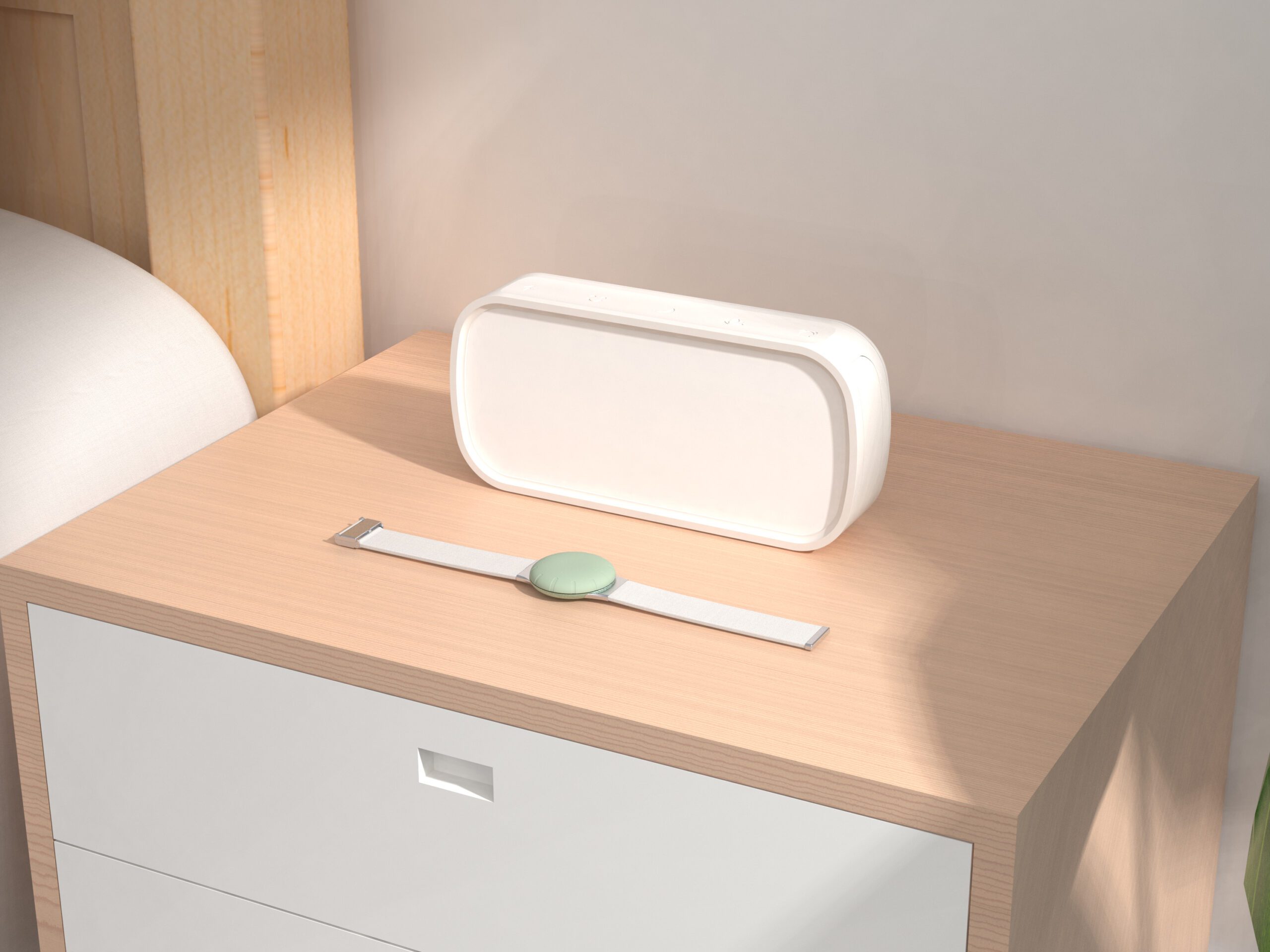
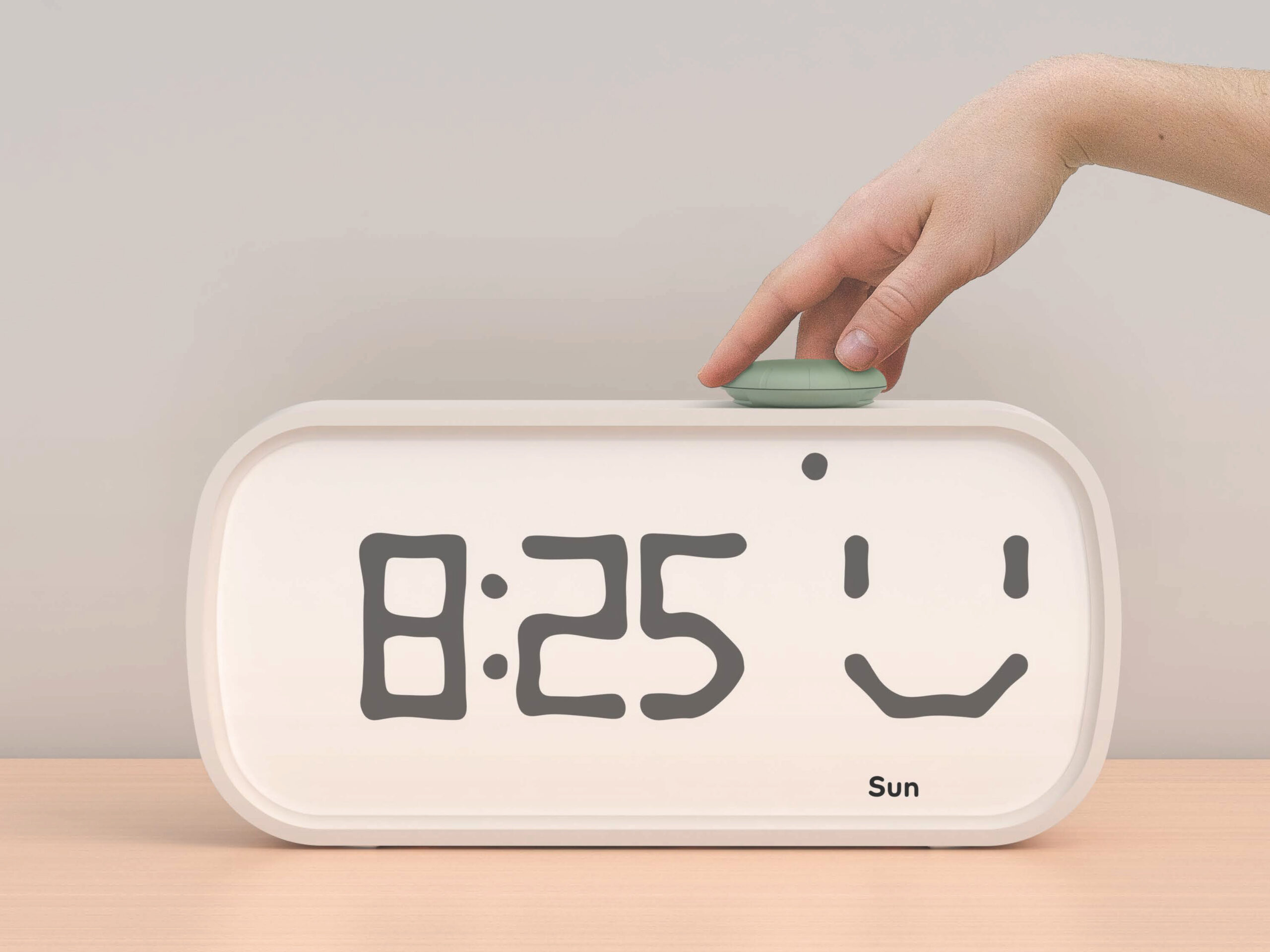
Integrated control dial
Once the watch unit has been magnetically removed from the straps and placed on top of the hub to charge, it then functions as the control dial. The dial magnetically snaps into place on 5 selection points when sliding it horizontally on top of the hub, which is to select either; time, reflect, emotions, sleep, or alarms. The user can then rotate the dial in 90° increments to navigate through sub-menu options, and pushing down on the dial as a button to select.
Calming displays
In the early stages of the project, ferrofluid (magnetic ink) was proposed as the method of displaying information due to its calming visual properties that it shares with lava lamps, the latter of which has been proven to give calming effects. The product now uses an e-ink screen instead for the display technology, but still replicates the look and movement a ferrofluid display would have. This involves the lines having fluid like properties, and organically morphing between displays, resulting in a calming and simple UI.
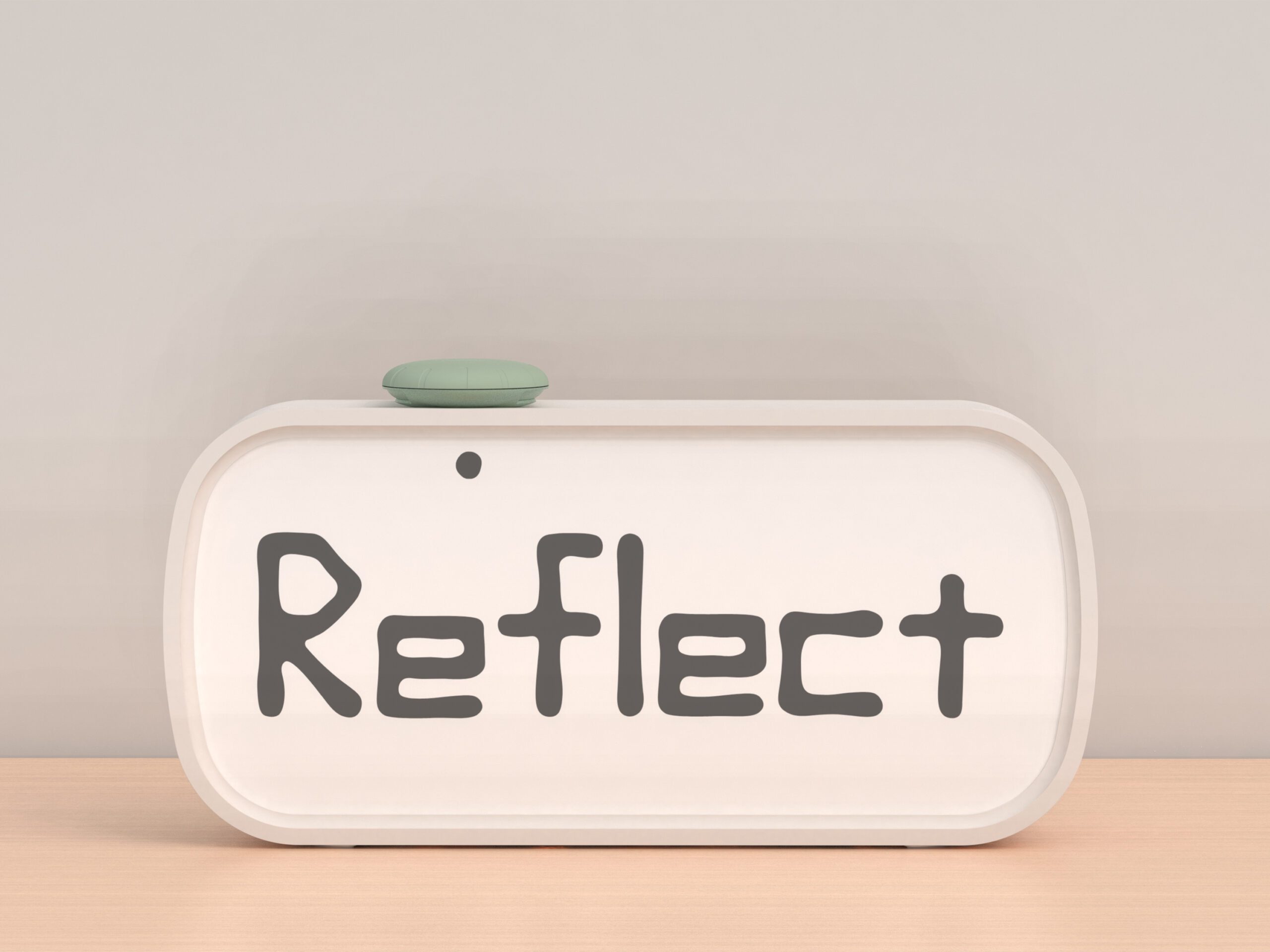
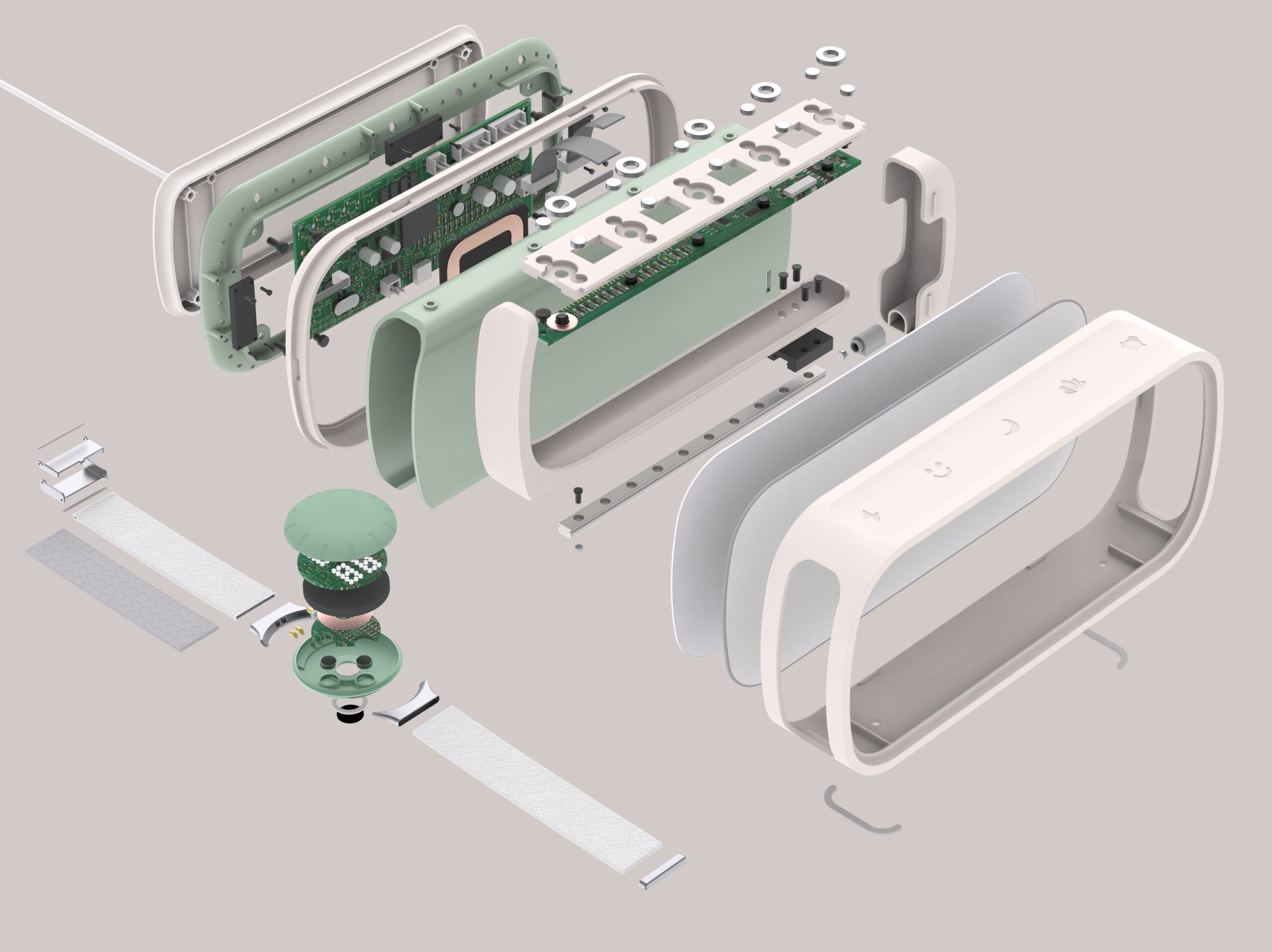
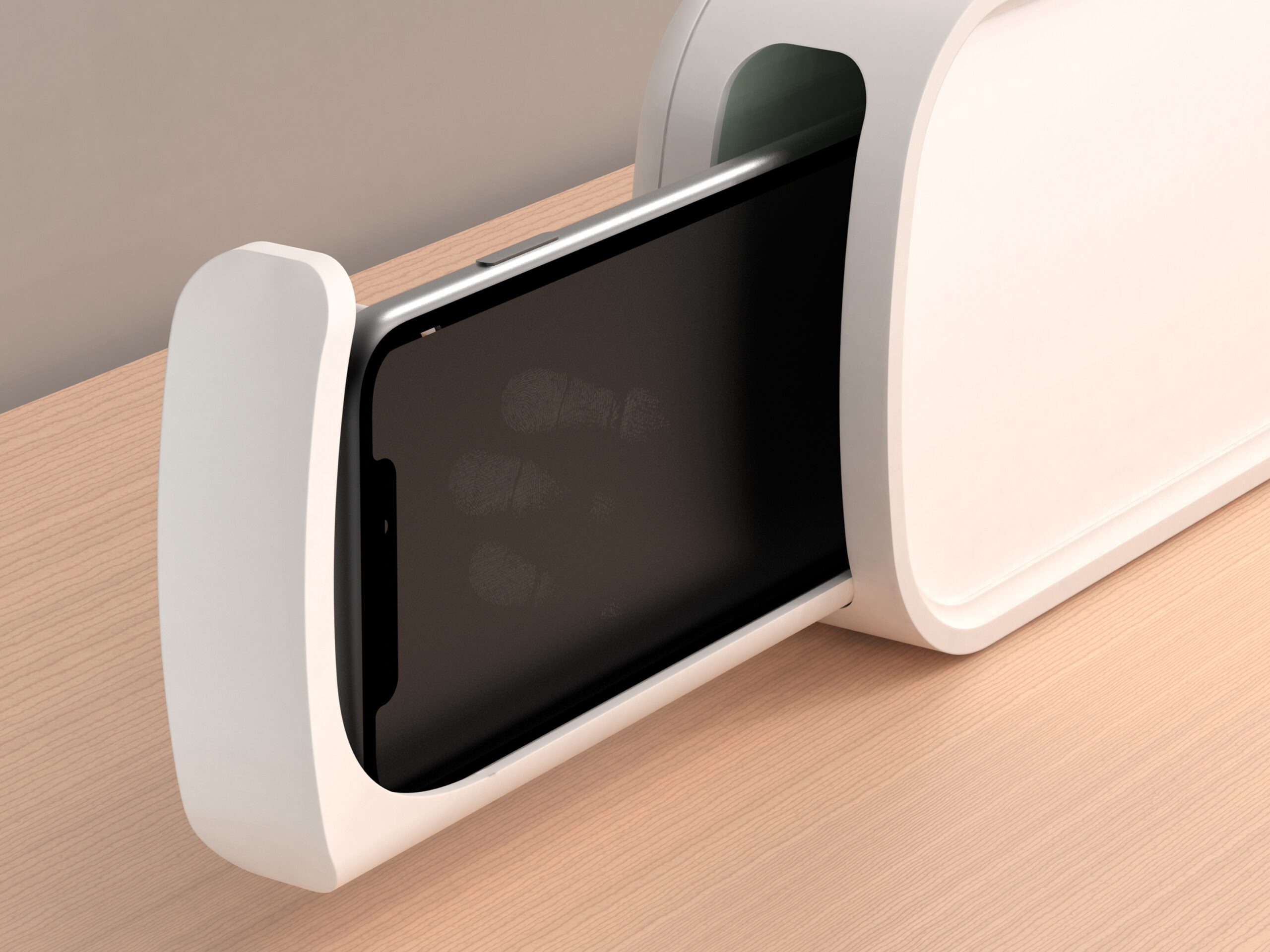
Phone safe
An integrated phone safe helps users to form healthier habits on their phone usage. On the side of the hub (orientation can be flipped) a dipped surface indicates to push in, which pops open the safe slider that the user can pull out.
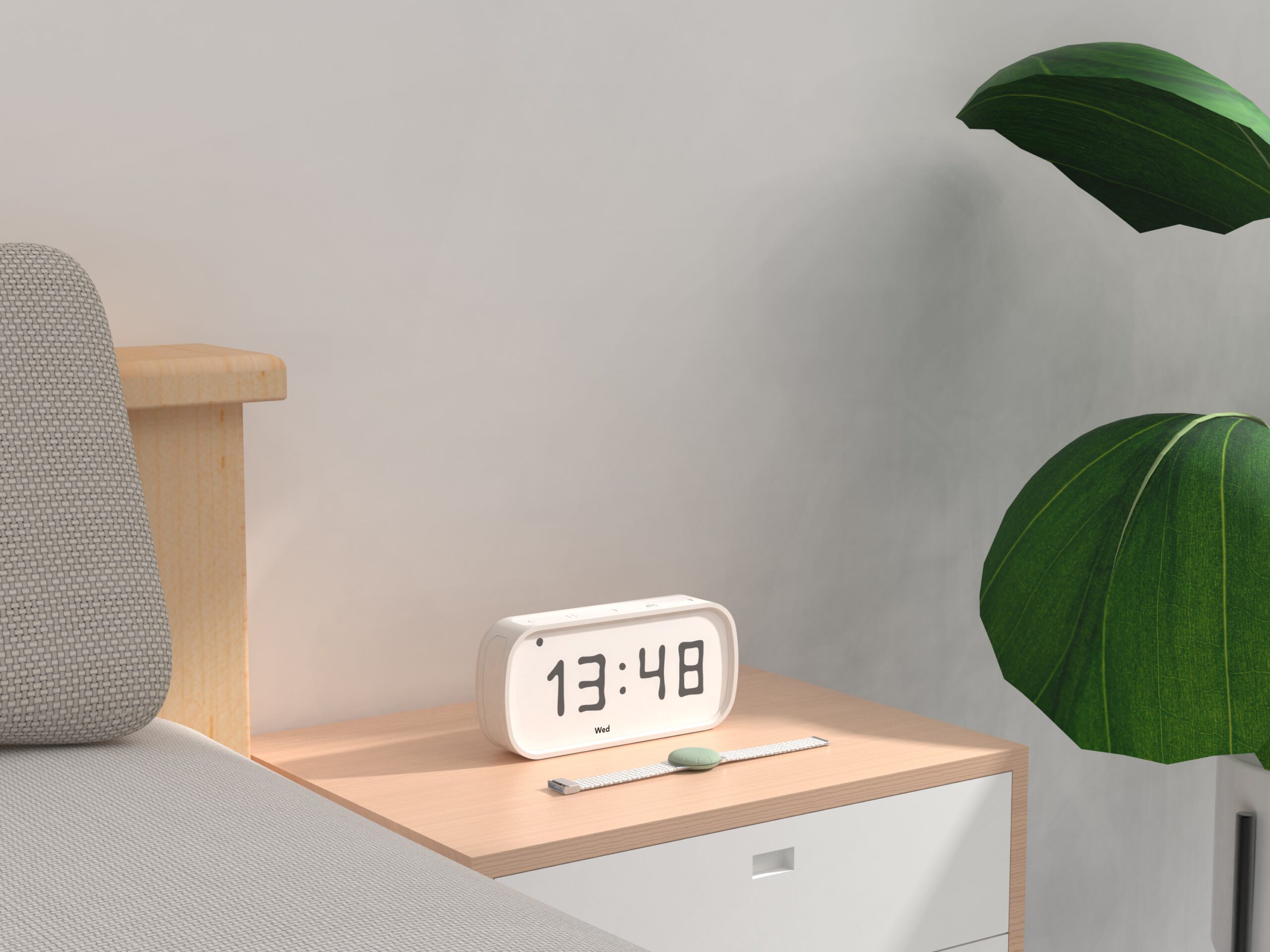
Calming aesthetics
The hub device aesthetics is designed to be calming and suit the target users bedroom, whilst the watch complements their dress style, with adjustable straps for better customisability.
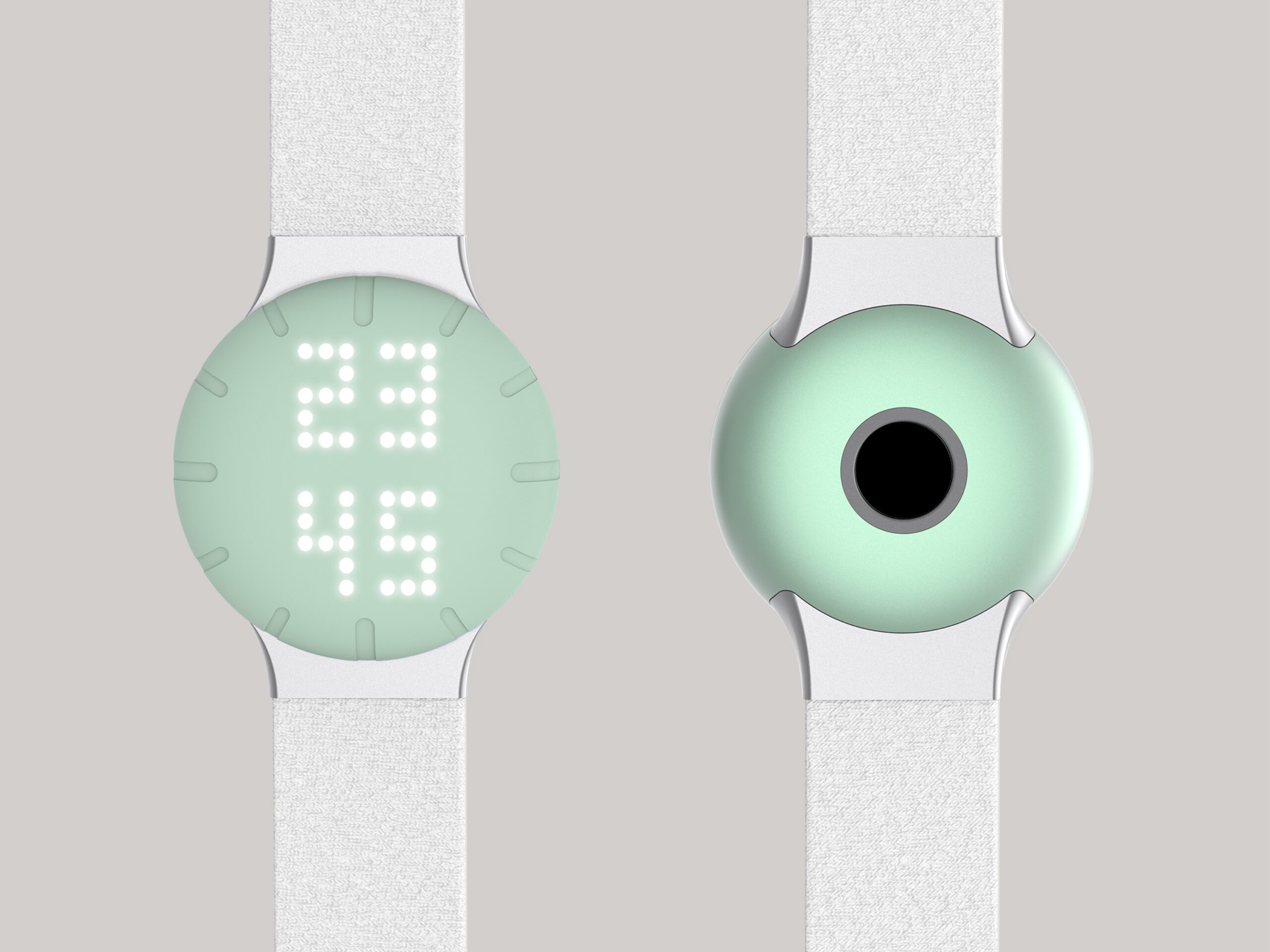
Smartwatch
Using photoplethysmography (PPG) and skin conductance sensors, which are commonly found in smartwatches, the device can determine your emotional data from your hear rate variability (HRV). It also functions as an actual watch, displaying the time through the use of an array of LEDs.
Semester 1 Pitch Video
This pitch video presents the proposed feasible concept at the end of semester 1, which is halfway through the project and academic year. Since then multiple things have changed, most notably the screen display technology, changing from ferrofluid to e-ink to reduce size and costs significantly.
Bike light holder
Design for 3D Printing
The brief was to design bike light holders that would use 3D printing as a final manufacturing method, whilst following some design requirements. We were strongly encouraged to make the most of 3D printings capabilities, and using it to add value to the final product, particularly in ways that injection moulding could not deliver.
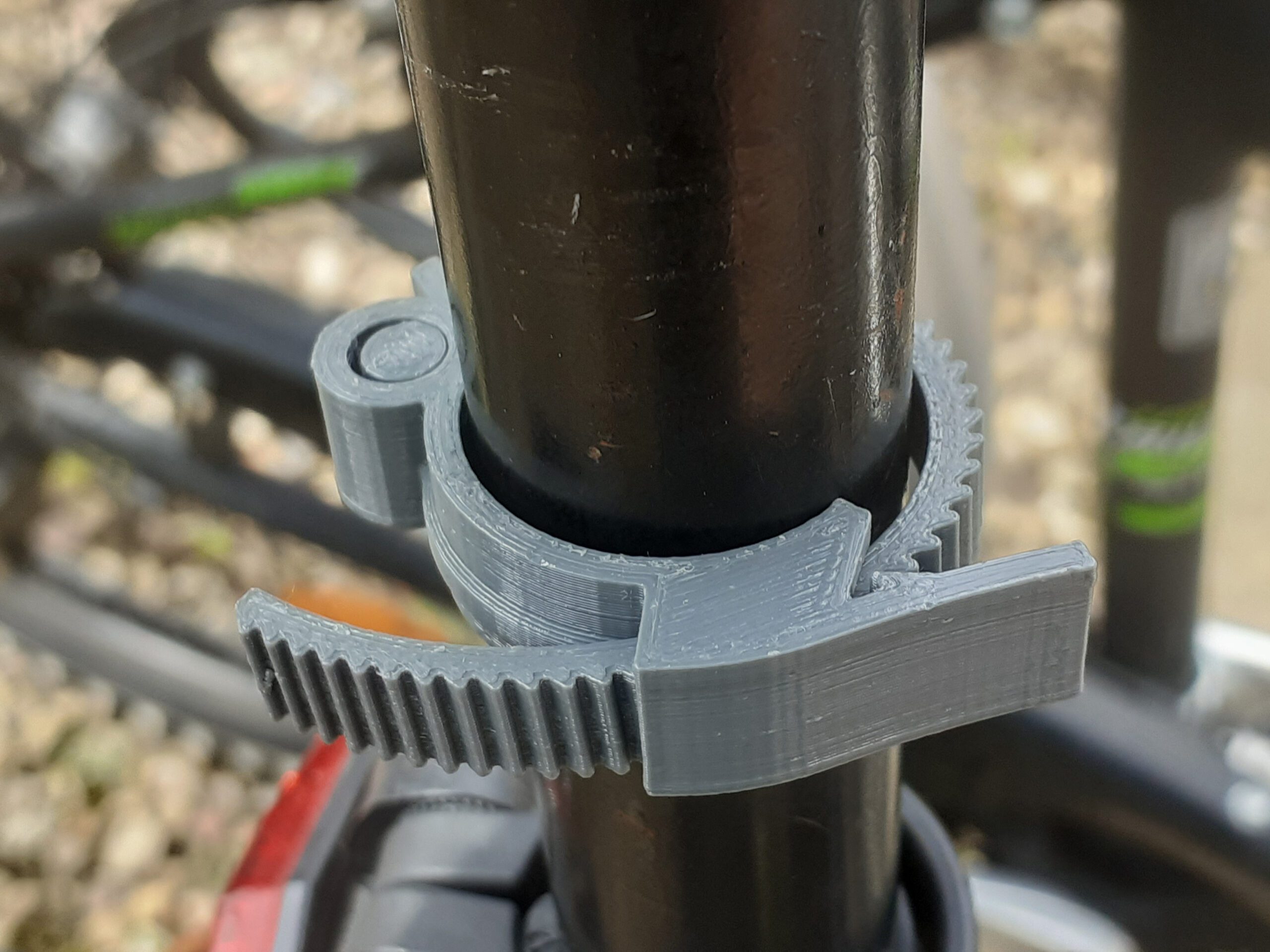
Multiple concepts and iterations were made early on to ensure the best possible method of attaching to the bike was used. After each concept was 3D printed it was tested and evaluated, helping to design improvements or other concepts.
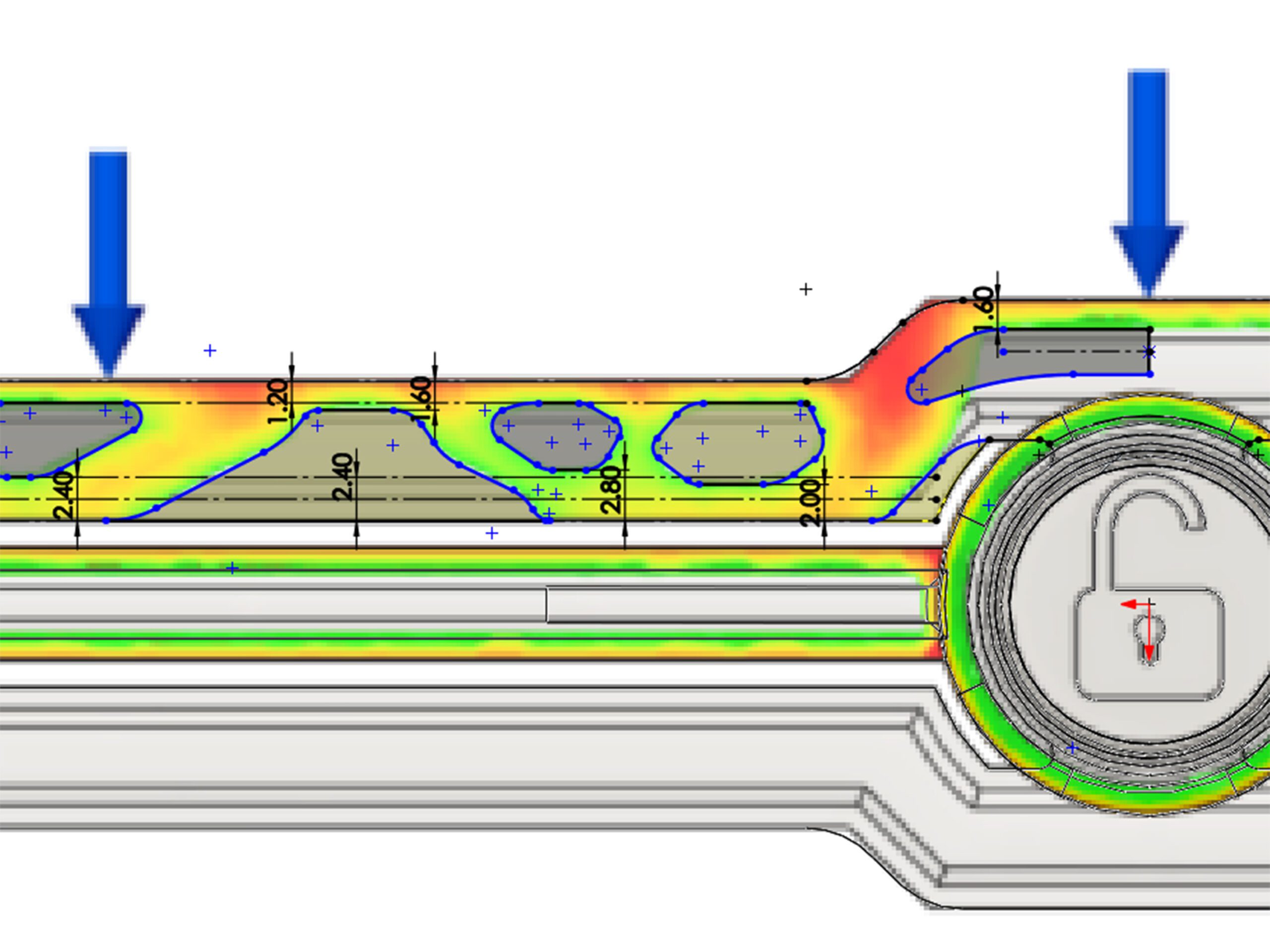
The final concept was improved by applying knowledge from general 3D printing guidelines, and CAD tools such as generative design, topology optimisation, and lattice building.
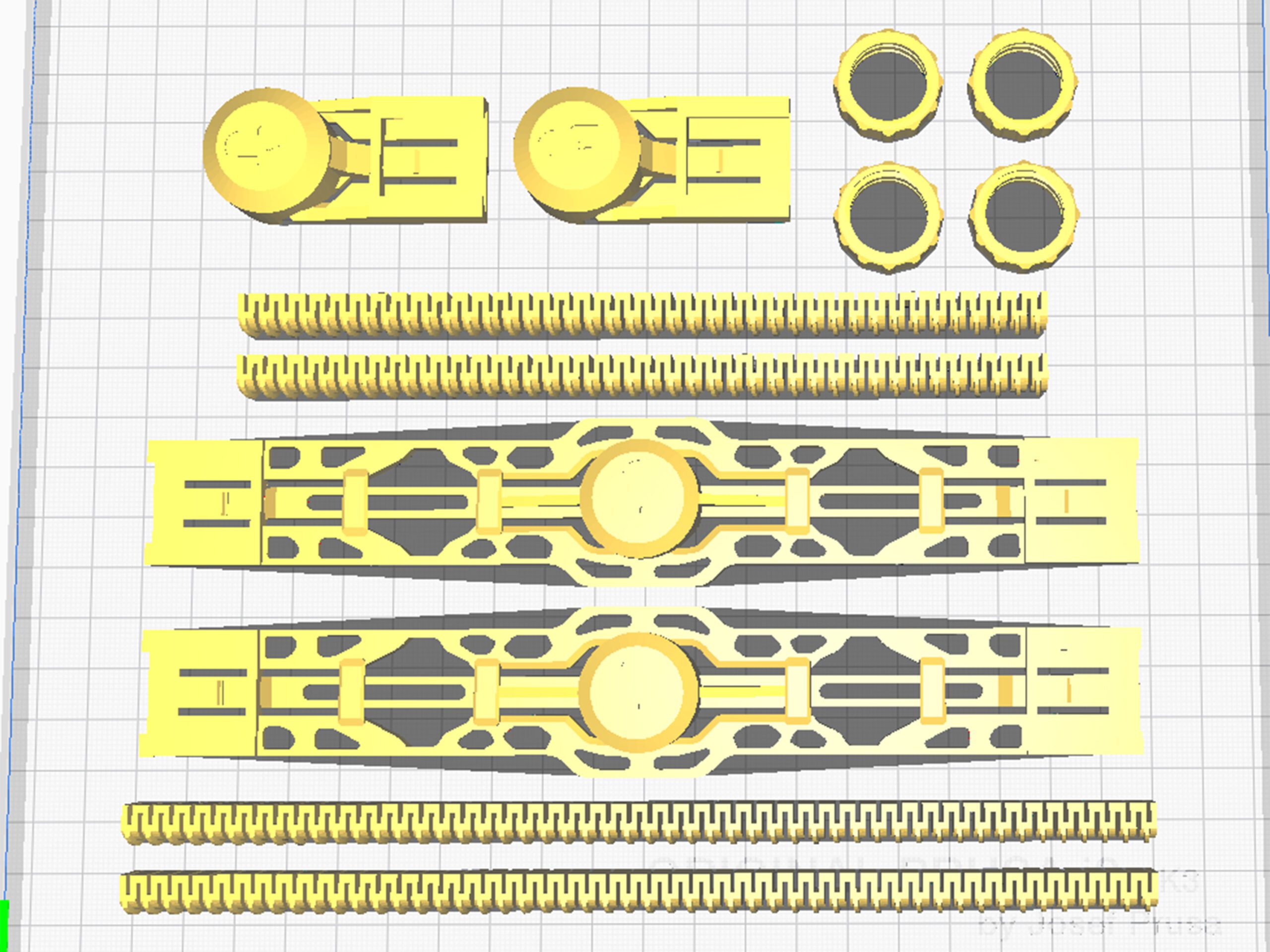
The parts were then further optimised for 3D printing in Cura, by reducing print time and material usage, whilst remembering to maintain the parts strength. The parts had to be arranged on the print bed in the most efficient way.
The goal for my design was to avoid using any supports, infill, or any non 3D printed fasteners, whilst also being able to securely attach it to any bike. From combining early concepts and tutor feedback, the final flexible piece was created, which used a screw thread along the outside to tighten securely with a separate part.
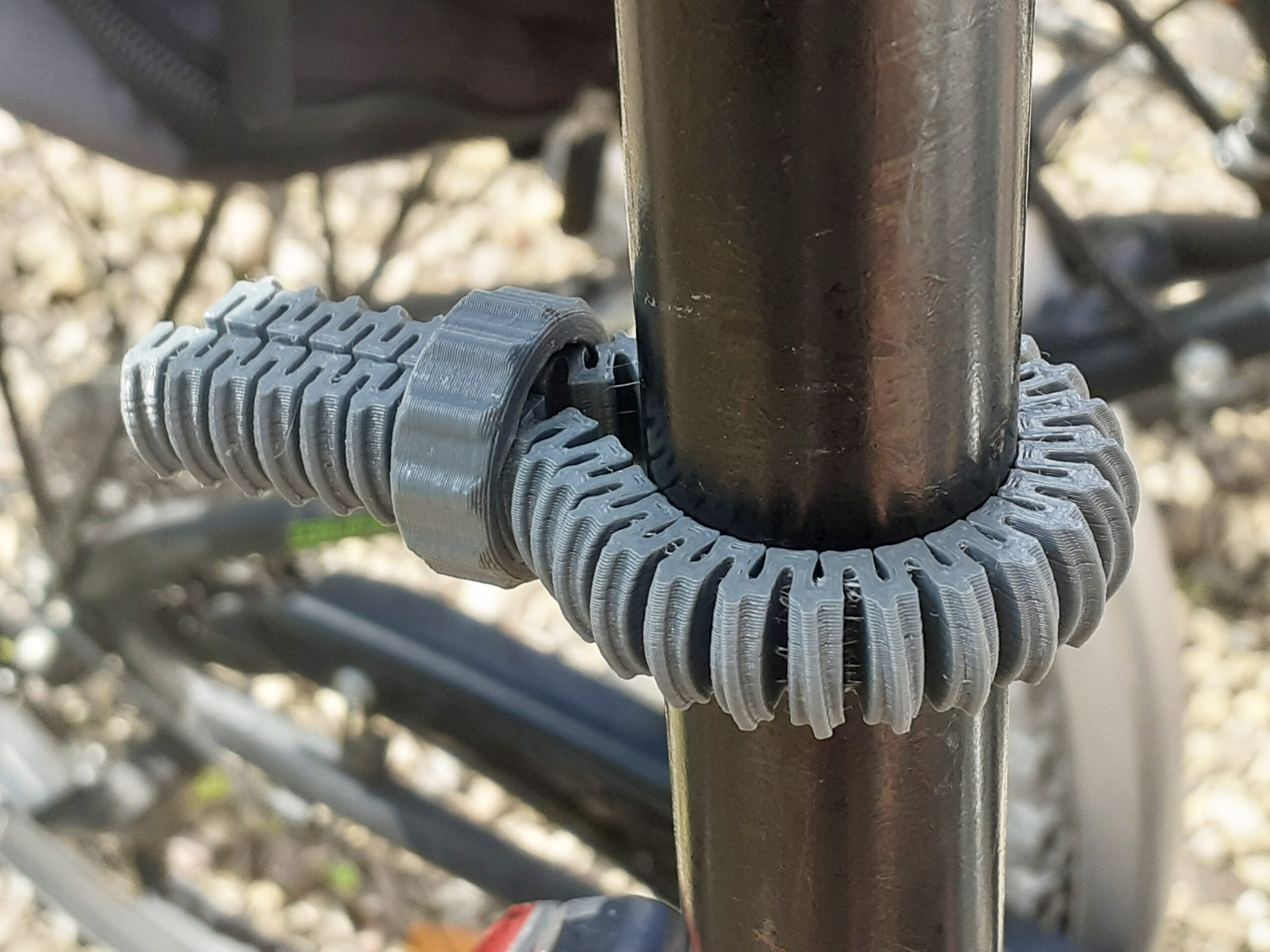
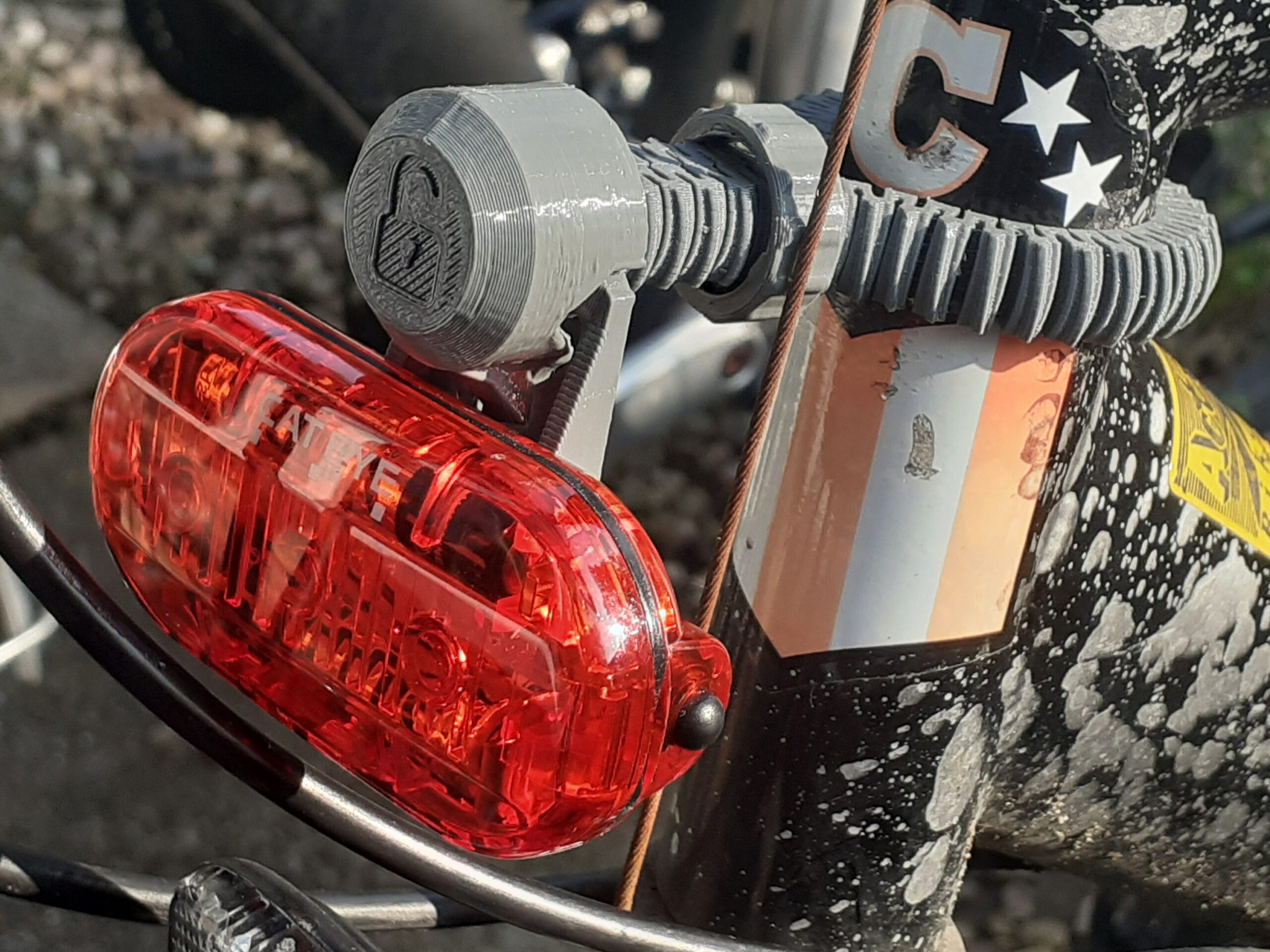
The final concept also makes the most of 3D printings manufacturing benefits through part consolidation and print in place functionality. In this case, there is a push release button for the light clip, which is printed as one part, but flexes within itself to release the light.
Awards
- Certified SolidWorks Associate: The CSWA certification (in mechanical design) is proof of your SOLIDWORKS® expertise with cutting-edge skills that businesses seek out and reward.
- 2020 Student Starpack Awards: Gold Star and Sponsor Award for ‘Frooty Pots‘ Brief D: Packaging to Help Reduce Consumer Food Waste
- ICAEW Certificate of Participation For demonstrating the use and development of: commercial awareness, teamwork, communications skills, time management, interview skills and presentation skills.
- Studentship Award (Hope International School) The “studentship award” I received at Hope International School at the end of year 11, was given for my “conscientious effort and pleasing attitude at all times”.
Work Experience
CAD Tutorial with Meshcanics
I got the opportunity to spend time and talk with an experienced CAD technician / designer, to learn the basics of Rhino 6.
Sales Assistant
Mountain Warehouse – Truro
I was responsible for stocking the store shelves, serving on the tills, and working as part of a team to meet targets. This role also required me to individually talk with and assist customers.
Visionary Thinkers
Visionary Creators
Visionary Makers